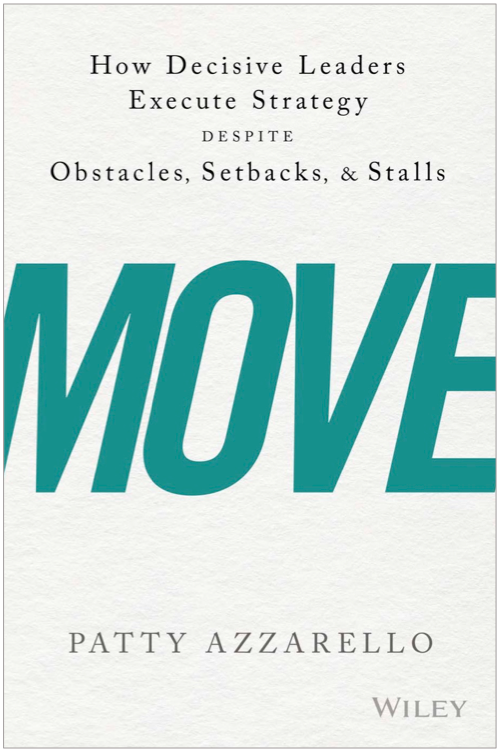 One thing no one ever tells you about executive positions is that a big part
One thing no one ever tells you about executive positions is that a big part
of success is simply surviving them.
You need to cope with the demands
on your time and your life in a way
that you can bring significant positive energy to bear on adding value to the business.
I am posting this blog from the UK.
It was one of those trips that was
supposed to be a straightforward direct flight from San Francisco to London, but we ended up on a detour through Munich with a standby ticket. We eventually arrived about 30 hours later. Our luggage was not so lucky.
So I thought this would be a good time to share some thoughts about energy management!
Energy management is equally, or more important than time management.
1. As you advance you no longer get paid for your time – you get paid for your value. And value is proportional to energy.
2. When it comes to the things that renew your energy, the difference between spending zero, and a little time doing them is huge – it’s a much bigger difference than between a little and a lot. So don’t wait – do something that builds your energy, even if it is for an hour per month. The psychological and energy gains will be huge. (More on this in a later post.)
3. Don’t turn problems into dramas. We all face big and small problems, nuisances in the form of people, processes, and things. I recently learned that the physical, chemical response for anger in humans lasts 60 seconds. After that, it is up to you how long you stay angry. Anger is a big energy drain.
4. Exercise – I always force myself to be brief when talking about Exercise because I am in danger of being an annoying fitness evangelist. So I for now I will keep it to two points. 1. If you want more energy, nothing has a bigger positive impact than regular exercise, and 2. If you are interested in how to get the most benefit from your exercise, you can check out a great article I co-wrote with my personal trainer awhile back.
In this post, I am going to elaborate on the first energy management point.
It’s not about the amount of time you work, it’s about the value of what you contribute.
The higher up you go in an organization, the less your job is about the work that you do personally and the more it is about the value you add by working through other people, and across and outside your organization.
Your value and necessary contribution is about growing profits, building capability and capacity, developing people, and innovating improvements in products, processes, and communications.
All of these things require real thinking, and thinking requires energy – positive, focused energy.
Some people make the mistake of trying to impress executives by telling them how much time they spent/sacrificed working on something. This is not impressive. What is much more impressive is to say, I got this done brilliantly in 1/10th of the time, and I had a fabulous weekend at the beach by the way.
A real part of your job is to figure out how to optimize your energy.
You need to make sure you are giving yourself the chance to operate at your highest capacity and to add the most value. Otherwise you are just working really hard and shooting yourself in the foot.
This requires a transition in how you think about your work, like I talked about in a former post – Addiction to Detail.
When you first start working in an entry level position you are a doer of work. You write, you code, you create, you deliver, you implement processes, etc. At that level you are being paid for your time.
Your work output is directly related to the time you spend at it. If you take a long lunch, you are stealing value from the company, because the value of your work is based on how much you work.
But as you advance, you need a values change. What you need to value is your ability to lead and to contribute. The amount of time you spend working is no longer directly related to the value you add.
And you are not going to be a good leader and innovator if you are fully consumed by the activities of your job and you are always burned out, pissed off and tired.
Your job is to find a way to manage your energy, so that you can do the strategic job which is necessary and expected.
Go to “the Dentist”
My personal example: When I had my first big job managing an organization of more than 1000 people, I didn’t go to the dentist for 4 years. “I didn’t have time”. When the topic of “dentist” came of with my assistant, she was appropriately horrified and had me at a dentist within 48 hours.
I told people at work, “you won’t see me till 11am on Wednesday, I will be at the dentist.” You know what. No one batted an eye, and the world did not come to an end. The lesson. Every once in awhile, tell people, “you won’t see me until 11am, I am going to the dentist.”
You need to give yourself time to think and to renew. It won’t happen automatically so you need to do it on purpose. Schedule it. You will also get an energy boost simply from feeling like you took control over some of your time.
You get smarter. You get better. You get happier.
I talk to CEO’s all the time, which is a 24×7 job, and they all tell me that if they can get a day or two completely away from work once in awhile, they become much more productive, and they are able to solve persistant problems, that have eluded them for months.
Or they are able to take their renewed energy and inspire and motivate their organization to focus and accomplish more. One CEO I know solves her toughest problems on long cycling climbs. What works for you? Do it!
Here are some specific approaches:
1. Think about what time of day and what day of week you have the most energy. When do you feel the smartest? When you are the most focused and motivated? Make sure you do not do not waste that time doing email, or sitting in a boring meeting. Schedule 2 hours during that time and HIDE.
2. You must hide. Be unavailable. Otherwise it doesn’t work. No matter how busy you are you should be able to schedule 2 hours per week to either think or to renew your energy. Also see Make More Time.
3. Think of an activity that renews your energy. If you are an introvert it will be something you do by yourself – it could be doing nothing. If you are an extrovert it likely involves other people. Plan something this month that will positively increase your energy.
For me, I can tell you that when I go into work at 10am instead of 7am once in awhile, sleep in, have a slow breakfast at home, and just give myself time to think, I am way better at my job. I might end up staying late to catch up on some things, but the company gets way more value out of me than if I just stay on the treadmill endlessly.
Let’s face it. You are not productive 100% of the time you are working anyway. So spend less than 100% of the time doing work. Not only do you have permission to do this, you are expected to do it.
In these tough times, companies are laying people off and people are fighting to preserve their value. I can tell you, working longer hours alone is not going to do it. See also, Be More Relevant and Do a Bigger Job.
If you want to preserve your value, you must add value, and to add value you need your energy and your brain fully engaged.
If you don’t you will lose credibility and be seen as a tactical and overwhelmed manager, not a leader who is in control are ready for more.


